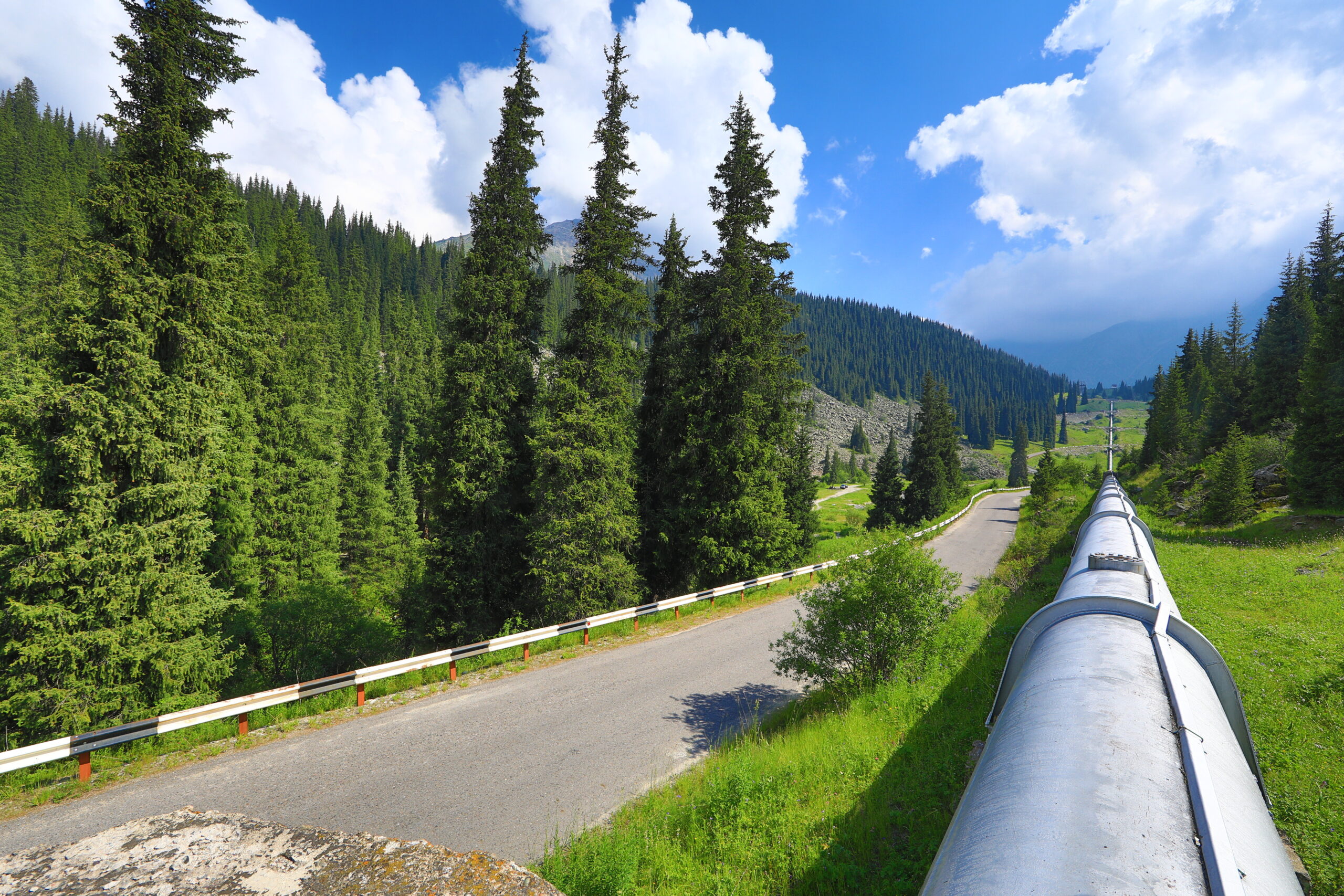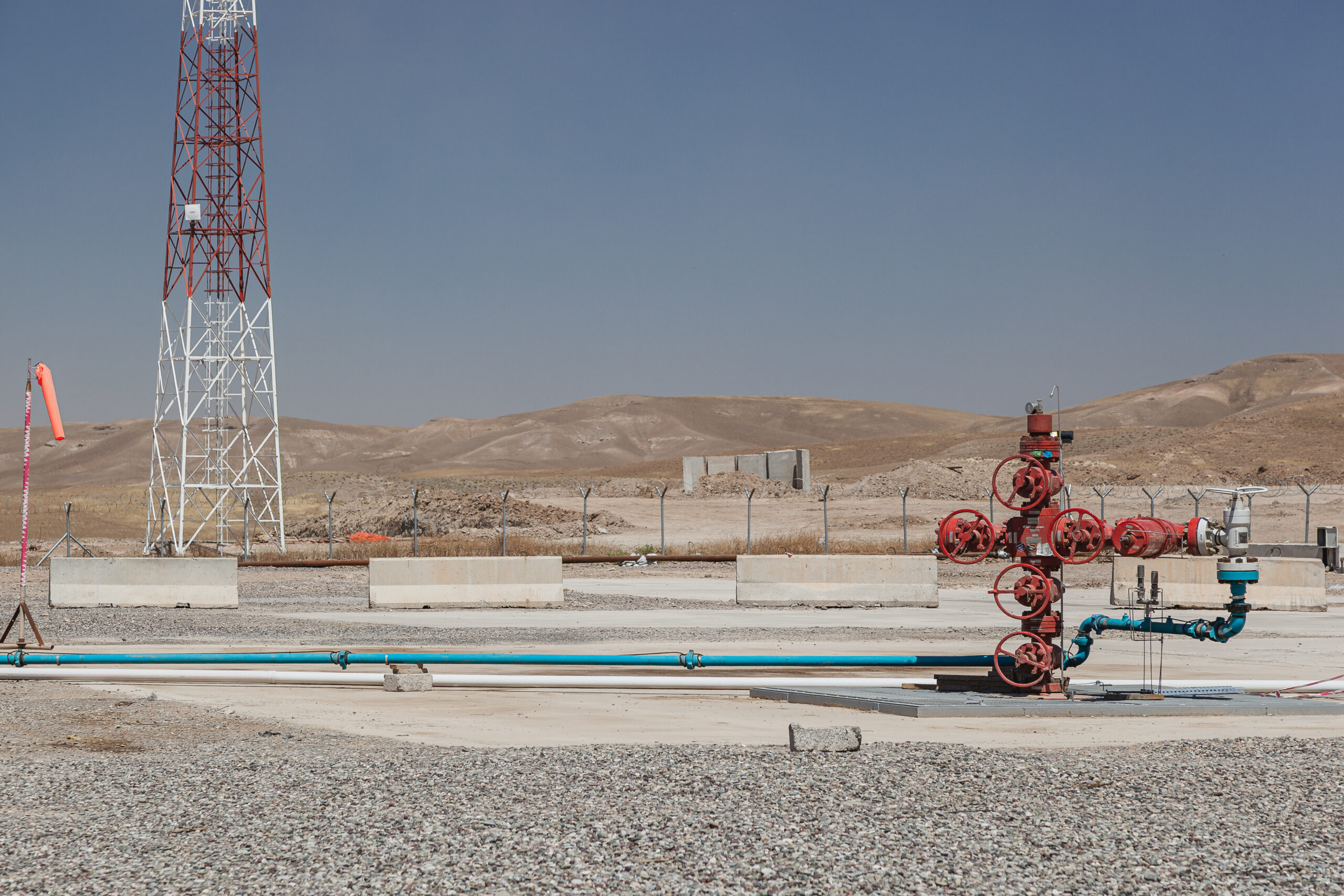U.S. okays Mountain Valley Pipeline in unprecedented move
Debt negotiations resulted in the approval of the Mountain Valley Pipeline, an unusual move that shows a “failure of governance” and “a lack of integrity in the whole process,” according to critics.

The U.S. Congress gave the greenlight to a long-distance gas pipeline that had been bogged down and delayed for years because of its inability to obtain a series of environmental permits. The extraordinary approval from the legislative branch of a specific gas pipeline will wipe away all legal challenges to the project, which critics say sets a dangerous precedent.
Republicans in Congress used the debt ceiling — a process by which Congress must periodically raise the authorized borrowing limit — to threaten default on U.S. debt unless Democrats agreed to certain conditions. The negotiated deal, which passed with bipartisan support, mostly froze spending on certain social programmes for two years.
But some unusual provisions, unrelated to budgetary matters, were also included. Among them are a weakening of the environmental legal architecture that has been in place since the 1970s, allowing for easier permitting of infrastructure projects.
The legislation also issued a blanket approval of the Mountain Valley Pipeline, a 303-mile (487 kilometre) pipeline that, if completed, would carry gas from the Marcellus Shale in West Virginia across the border and into Virginia. It would connect a huge source of gas supply to markets in the southeast. The project is a high priority for the gas industry in Appalachia, but it has run into stiff resistance from communities living in the pipeline’s path.
The project has suffered repeated legal setbacks and has been the subject of intense litigation for several years. Its construction has led to hundreds of water quality violations, and critics say the pipeline cannot be constructed safely, having to traverse steep and erosion-prone mountains in Appalachia. A 2021 peer-reviewed paper looked at 46 pipeline projects around the country and found that the Mountain Valley Pipeline faced the highest level of landslide risk.
In other words, there are very specific reasons why the pipeline has been repeatedly held up in court. But project supporters, including West Virginia Democrat Joe Manchin, the largest congressional recipient of campaign contributions from the oil and gas industry, have pointed to the Mountain Valley Pipeline’s legal woes as a justification for “reforming” the permitting process.
“It’s unprecedented interference. It tells industry that if you can’t get permits fairly under the law, then cheat,” Mary Finley-Brook, associate professor of geography and the environment at the University of Richmond, told Gas Outlook, referring to greenlighting of the pipeline in the debt deal. “It shows the depth of the rot and the extent of industry control. And that’s what’s so astonishing.”
The White House, in an effort to assuage the concerns of Democrats in Congress who were angered at the approval of the pipeline, insisted that the project’s completion was a foregone conclusion with or without the deal. But that was far from the case.
Having originally aimed to be completed by 2018, the project is years behind schedule, and costs have nearly doubled from $3.7 billion to $6.2 billion, a figure that is surely set to rise further.
The project’s sponsors and equity partners have also admitted that completion was entirely uncertain.
“[T]he Company’s belief that achieving an in-service date of the Mountain Valley Pipeline prior to December 31, 2024 is not probable,” EQT, a Pennsylvania gas producer who is contracted to ship gas on the pipeline, said in a securities filing earlier this year. NextEra Energy, a company with a stake in the project, said in 2022 that there was a “very low probability” that it would be completed. A similar project, the Atlantic Coast Pipeline, was cancelled in 2020 following years of delay and ballooning costs.
More recently, the Mountain Valley Pipeline saw yet another legal setback. On May 26, a federal court ruled that the Federal Energy Regulatory Commission (FERC) did not adequately assess erosion from the pipeline’s construction, and the court ordered FERC to do a more thorough environmental assessment. That decision “could push the project’s completion into 2024,” ClearView Energy Partners, a Washington-based analysis firm, wrote in a note to clients prior to the project’s inclusion in the debt deal.
In addition, another federal court recently invalidated a key environmental permit in the state of West Virginia, forcing more delays.
With Mountain Valley Pipeline’s completion in doubt, powerful allies of the project stepped in to help, tucking its approval into a sprawling debt negotiation with the clock ticking. Unless the entire package was approved by June 5, the U.S. would default on its credit, potentially setting off economic havoc.
That has led the U.S. to the unusual situation where the legislative branch has now explicitly approved a project that should have gone through the normal state and federal permitting process. The passage now ends litigation and all judicial review, meaning the pipeline will swiftly get its needed permits and can move forward.
In response to questions from Gas Outlook, Mountain Valley Pipeline said in a statement: “MVP is among the most environmentally scrutinized projects to be built in this country, having been subject to an unprecedented level of legal and regulatory review,” adding that “we are grateful for the full support of the White House, as well as the strong leadership of Democratic and Republican legislators.”
But in addition to the environmental hazards associated with the construction of the pipeline, it is the apparent corruption of the process that has left project opponents aghast. In the days preceding the vote, a joint letter signed by 175 environmental groups and frontline communities called on the Democratic Leadership to pass a “clean” debt bill that does not weaken environmental laws or approve the pipeline.
Members of Congress from Virginia issued a joint statement opposing the effort to single out the pipeline for approval. “We are incredibly disappointed the Mountain Valley Pipeline was included in the bipartisan budget agreement,” six members of the House of Representatives from Virginia said in a statement. “Permitting for the Mountain Valley Pipeline has nothing to do with our nation’s spending and should not be included in the budget agreement. This provision is a free pass for the pipeline and sidesteps our nation’s environmental laws and judicial review processes.”
“People aren’t even having conversations about why water and air and environmental planning are necessary elements to our democracy and to our economy,” Finley-Brook said. “To have people doing a victory dance on something that is so fundamentally against checks and balances, separation of power, transparency, rule of law, respect for the courts…It just really showed not only the failure of governance, but the lack of integrity in the whole process.”
In a New York Times op-ed, Jonathan Mingle, a journalist who has closely followed the saga with the pipeline, described the approval of the project via Congress as “the legislative equivalent of overturning the Scrabble board in a fit of pique when you’re losing a game fair and square.”
Appalachian gas
The Mountain Valley Pipeline has been a high priority not just for the project’s sponsors, but for many gas drillers in Appalachia. The region’s gas production has been more or less capped at current levels because of limited pipeline capacity to move gas out of the region. Regional gas prices also trade at a discount relative to other price markers because of slack market conditions.
If the pipeline goes forward and is completed, it could open up upstream production to more markets. That would raise prices, boosting profits for gas drillers in the Marcellus.
But while that would be good for gas producers, it could add to the economic woes of the region, says Sean O’Leary, a senior researcher at the Ohio River Valley Institute. He has studied the economic impact of the 15-year fracking boom to Appalachia, and has concluded that it has had no discernable positive impact. In fact, many of the counties in Appalachia that saw the most concentrated drilling activity over the past decade and a half have had worse economic outcomes than other parts of the region.
One of the main reasons is that fracking is highly capital-intensive, but simply doesn’t employ that many people. Most of the investment does not stay locally.
“In our region, only about 8 to 9 cents of every dollar that is invested goes to labour at all,” O’Leary said. On top of that, many of the workers are brought in from other places, such as the Gulf Coast, which has more sophisticated oil and gas services industries.
That means that even if the Mountain Valley Pipeline boosts the fortunes of some gas companies in the Marcellus shale, it won’t benefit the region. “It doesn’t matter how much gas Appalachia produces. It won’t make any difference economically,” O’Leary said.
“If anything, increased production is likely to worsen economic conditions,” he said, noting that a mature industry reliant on existing production needs even fewer workers than newly drilled wells.
On top of that, Appalachia has long suffered from a brain drain, a trend that O’Leary says is likely worsened by high levels of drilling activity, which can drive up the cost of rent.
The conventional wisdom that fracking brings environmental degradation but also an economic windfall is incorrect, he said.
“I’m really bothered by the claims and the presumptions that people are making that natural gas development is favoured by Joe Manchin and others because it’s economically good for the region. And then by implication, that any opposition to the Mountain Valley Pipeline or to the industry as a whole is environmental in nature,” O’Leary said.
“There are great environmental reasons to have issues with the gas industry. But I hate it when this issue is constantly pigeonholed as being jobs versus the environment. Because it’s not jobs. There are very sound economic reasons to oppose this.”
But the proposed legislation wipes all those concerns away by greenlighting permits and them removing the ability of courts to oversee the process.
Senator Tim Kaine, a Democrat from Virginia, proposed an amendment to the debt deal on Thursday that would have stripped all provisions related to the Mountain Valley Pipeline from the legislation, but it came up short. The entire Senate passed the package late Thursday night, clearing the way for President Biden to sign it into law. The pipeline now has a clear path to completion.
But Finley-Brook said that opponents won’t give up. “I honestly think this is where people are going to dig in,” she said, adding that young people in particular feel “sold out.”
“I can feel the tension among young people who really have wanted for so long to think that petitions are going to be enough and writing comments was going to be enough. There’s just such a sense of deception and betrayal and anger.”
Activists are planning a protest in front of the White House on June 8. Finley-Brook said that Appalachian communities opposed the project, having seen their legal recourse short-circuited by a deal in Washington, won’t give up and may turn to trying to block construction of the project.
“People would definitely put their bodies on the line,” she said. “This movement has only grown.”



